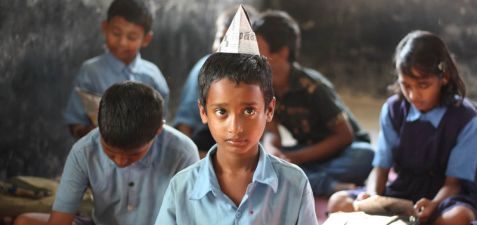Underprivileged children in rural areas have tremendous pressure to earn a livelihood due to which they have to drop out of formal education at an early age. In rural areas, parents find education a waste of time and hence force their children into an occupation. Abhinandan has been working in the fields of education and welfare for more than a decade now. Our various projects have benefited many children in distinctive ways. We have secured the future of children who lacked the means of undergoing a formal education. We take pride in sharing that at our Nizammudin center alone, 112 children have received formal education and 232 children have acquired different skills such as mechanics, carpentry, singing, dancing, computer operating, docketing, etc.
One critical challenge for less privileged children is access to quality education. Many live in areas where schools are underfunded and need more basic facilities, trained teachers, and educational materials. Various non-governmental organizations (NGOs) and community initiatives are stepping up to address this issue and provide resources and support. Programs that offer free tutoring, scholarships, and school supplies can significantly reduce the financial burden on families and encourage attendance. Moreover, the introduction of mobile schools in remote areas has proven effective in reaching children who otherwise would not have the opportunity to learn.
In addition to academic education, it is essential to focus on the overall welfare of these children. This includes providing access to healthcare, nutrition, and emotional support. Malnutrition and health issues can severely hinder a child’s ability to learn and thrive. Initiatives that deliver nutritious meals to schools or health check-ups can make a substantial difference. Mental health is another critical aspect; counseling and support systems can help children cope with challenges, fostering resilience and self-esteem.
Community involvement plays a vital role in the education and welfare of lesser privileged children. Local leaders, volunteers, and families must create a supportive environment. Awareness campaigns can encourage the community to prioritize education, breaking down stigma and encouraging parental involvement in their children’s education.

